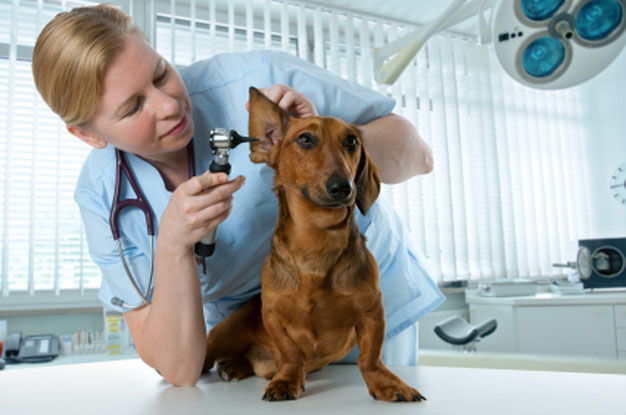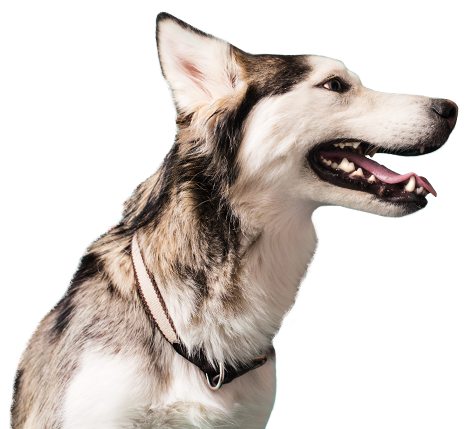
The smell of a dog is a common topic of discussion at our veterinarian practice. Sometimes when I walk into a closed exam room, the strong odor can be so powerful it will knock me over. There are some obvious places to examine on your dog when looking for a solution. Let’s first discuss the ears, otitis and bacterial and yeast infections.
Smelly Ears in Dogs
Otitis is term for the inflammation of the ear canal. It can be caused by bacterial or yeast infections or an inflammatory event such as allergies.
Many of the dogs we see have ears that droop or hang down. When ears hang down it keeps the temperature higher in the ear canal and prevents normal ventilation. Additionally, many dogs have a lot of hair around the ear and inside their ear canal. That hair holds the moisture and the heat inside the canal increasing the amount of bacteria and/or yeast in the ear. It is this bacteria and yeast that are causing the strong smell.
Why Do My Dog’s Ears Stink?
One bacteria in particular, Pseudomonas aeruginosa, is a bacterium that has the most horrific odor. It likes to grow in dark, wet spaces like a dog’s ear. Its smell is so profound, that I can usually diagnosis it by the smell alone. A culture is needed to confirm a Pseudomonas infection because it tends to be resistant to the majority of antibiotics. Therefore, a culture will indicate the best antibiotic to use. Often times a client will bring in a dog that has had lifelong ear infections. They have been using antibiotics with little success. This can be because they are using antibiotics that test resistant on culture. This is such a waste of time and money. When rod bacteria are detected on a simple cytology that we do “in house”, we are going to suggest a culture and sensitivity to be sent to the lab for just this reason. Results will come back in about a week.
As a side note, cats rarely have serious smelly ear problems. Probably because of the open canals and erect ears. If I see a cat with a particularly severe bacterial otitis, it is often in an elderly cat with a tumor located in the ear canal.
Yeast Otitis
More common than bacterial otitis, is yeast otitis. Yeast is like mold — it likes to grow in dark, hot and humid (or wet) environments. Therefore, in Florida we see a lot of yeast in the ears. No different than “jock itch” or “athlete’s foot”, yeast otitis can be very itchy. Dogs will often shake their heads and dig at their ears. They often lean into their owner’s hand when their ear gets rubbed. If you look at the discharge itself, with yeast it will likely be reddish-brown and greasy, as opposed to a bacterial infection, which is typically yellow or cream colored and thick and viscous.
Often times there is a mix of yeast and bacteria in the ear. Most of the medications dispensed will have an antibiotic to treat the bacteria, a product for yeast and a steroid for the inflammation.
How to Properly Clean Your Dog’s Ears
It is important to first clean your dog’s ear. We also will dispense an ear wash. Please do not empty the wash or “flush” directly into the dog’s ear. It’s too cold and not necessary. Simply apply a small amount to a gauze sponge or cotton-ball. Start at the top of the earflap and wipe, moving down into the canal. After cleaning, instill your medication deep into the ear canal. Remember, just like your bathroom, ears need to be cleaned weekly. The environment will always allow for yeast (mold) to return, so keep it up weekly at the very least.
Ears that have chronic problems will often cause the ear canal tissue to swell. Swelling only compounds the problem by closing the ear canal and preventing ventilation as well as increasing the heat. Bingo — big problem! Once swollen, they never un-swell. This becomes a perpetual problem of medicating for the owner, as well as a lifelong painful condition for the pet.
If your dog has smelly ears contact us today so that we can help get them healthy.
Be sure to check out part 2 of our look at smelly dogs!

Contact Us
Regular check ups with a veterinarian are important for your pet's health. Contact us today to schedule your next appointment.





